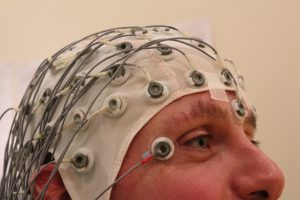Exploding head syndrome is used to describe the sensation some patients experience of loud noises when falling asleep or waking up. This sensation is intense and can lead to fear, anxiety and stress for the individuals that experience it. It’s not called exploding head syndrome for nothing.
An early description was noted in, “On some of the disorders of sleep,” Va Med Mon 1876, by Silas Weir Mitchell, where patients showed “sensory discharges” and experienced explosive sounds like pistol shots and loud bells. The sensations can be heard in the ears, within the head, and sometimes can be associated with mild pain. Often an aura precedes these experiences, an electrical sensation from the waist to the head.
Causes and Treatments
Patients that experience this syndrome range from having one experience in all their life to others having multiple experiences in a single night. Factors that increase the possibility of experiencing these sensations are high stress and anxiety. Age may also be a factor, often it is noted in patients over 50. People with hypnic headaches, that wake patients during the night, also experience this phenomenon.

Fear, stress, tachycardia and palpitations are common side effects of this syndrome. These effects often lead people to seek out medical attention. EEG (electroencephalography) findings are inconsistent with possible seizure activity. Sleep recordings show that episodes occur only when the patient is awake but is in a relaxed state. Some studies have shown that deeper brain centres may be asleep when an episode occurs. Most patients feel these events occur when they are asleep. They may be misremembered when they are awake as having occurred when asleep.
Treatments for this disorder range from anti-depressants, calcium channel blockers, and cognitive behavioural therapy. There are theories for the cause of this disorder such as ear dysfunctions, temporal lobe complex partial seizures, sedative/anti depressant medication withdrawal, calcium channel dysfunction, and brainstem neuronal dysfunction during transition from wake to sleep. Differentiating exploding head syndrome from other disorders will help with treatment options for patients that present with this disorder.
Sharpless Brian A. CLINICAL REVIEW: Exploding head syndrome. Elsevier 2014
